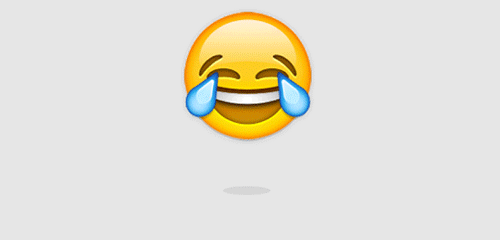Sign up for The Media Today, CJR’s daily newsletter.
Sometimes, there are no words to describe the Words of the Year. That’s because sometimes, the Words of the Year are not actually words.
This year, for example, Merriam-Webster’s Word of the Year is actually a suffix: “-ism.” And Oxford Dictionaries’ Word of the Year has no letters in it at all—it’s an emoji:

It stands for “face with tears of joy.”
Words of the Year are selected in different ways. Sometimes the words are chosen by a vote, of readership in the case of the SFgate.com contest, or of linguists and usage experts in the American Dialect Society. Sometimes they’re determined by a panel of experts or users, or by a formula, as Merriam-Webster does. (M-W tried an online poll for a few years, but dropped it.)
As Peter Sokolowski, M-W’s editor-at-large, explained, seven words were among the top words that had both “a high volume of traffic” and “a significant year-over-year increase in lookups at Merriam-Webster.com.” Those words were:
- fascism
- racism
- feminism
- communism
- capitalism
- terrorism
It’s easy to see why each of those words was looked up so frequently in 2015.
In fact, the annual Words of the Year lists are an opportunity to see the societal trends of the past year as well as the popular culture trends.
Dictionary.com, for example, named “identity” as its WOTY. “Our data indicated a growing interest in words related to identity, as people encountered new terms throughout the year based on events tied to gender, sexuality, race, and other key issues,” said Liz McMillan, CEO of Dictionary.com, in a blog post. “Many words surrounding these topics trended or were newly added to our dictionary this year, making identity the clear front-runner as the Word of the Year.”
Dictionary.com is based on the Random House Unabridged Dictionary, which updated several entries last year in line with its WOTY, including adding a usage to the verb “identify”: “to associate oneself in feeling, interest, action, etc., with a specified group or belief system (usually followed by as or with).”
That trend is also reflected in the American Dialect Society’s selection of its WOTY: “they.” “They was recognized by the society for its emerging use as a pronoun to refer to a known person, often as a conscious choice by a person rejecting the traditional gender binary of he and she,” the announcement said.
Voting for “they” also aids the movement to allow “they” as the gender-neutral pronoun that English lacks, a topic we’ve also weighed in on. If you can avoid an awkward “each person should be identified as he or she wants to be” with “as they want to be,” language would be smoother.
Last year, the ADS named a hashtag as its WOTY: “#blacklivesmatter,” the first time a hashtag had reached Word of the Year status. Oxford was not the first to use an emoji, though: The ❤️ emoji was named Word of the Year by the Global Language Monitor, whose selection rarely makes the news.
As Oxford explained, was the “most used emoji globally,” as determined by Oxford in partnership with the tech business SwiftKey, making up 17 percent of all emoji used in the United States and 20 percent of those used in the United Kingdom. Interestingly, “emoji” itself is not in many dictionaries, yet. (Is the plural “emoji” or “emojis”? Yes.)
As we’ve said, Words of the Year are sometimes quite forgettable. Case in point: Merriam-Webster’s Word of the Year for 2007 was “wOOt.” Maybe it’s spelled “w00t,” with zeros instead of capital “o’s.” M-W said it stands for “We Owned the Other Team.” But in Merriam-Webster’s Unabridged Dictionary, the derivation is given as “perhaps extension of whoo, with t representing glottal closure.” Either way, it has become far more common as an alternate spelling, “woot.”
Whatever they want.
Has America ever needed a media defender more than now? Help us by joining CJR today.



